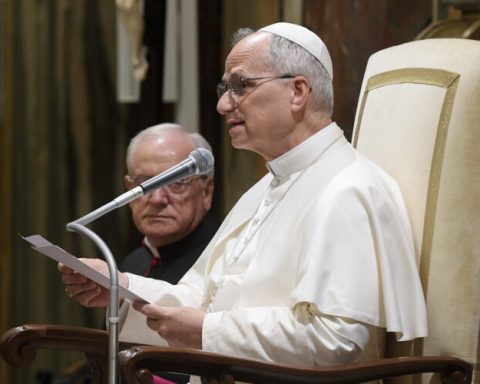MIAMI, United States. – The ability and resources that the Castro regime dedicates to continue undermining the life of the common citizen with laws and provisions that are frankly absurd and ineffective is astonishing.
These days, the so-called “Package”, a weekly compilation of audiovisuals and international publications that is offered in a kind of unauthorized market via USB, was threatened with death.
It is certainly a relief for the entertainment that generations prior to the digital explosion did not enjoy, in which the world is immersed and which the regime observes with suspicion from ideological barriers.
The arrival of the first video cassette players to the Island broke the sinister monopoly of control that the dictatorship maintained for decades, from its politicized and insufferable television to the very ICAICwhich heavily censored all cinema that did not adhere to the guidelines of the “commander in chief.”
It was around that same time that the Ministry of the Interior created a division called Omnivisión, where every week it released several film titles, mainly American, subtitled into Spanish in cassette formats, to be sold especially in Latin American countries and distributed to certain privileged members of the nomenclature, from which some copies were then leaked to the common citizen.
Personnel from the Cuban embassies and businessmen in charge of “breaking the blockade” in strategic places like Panama were in charge of copying the films broadcast by channels such as HBO and Showtime, to later be sent to Omnivisión, where they were reproduced commercially.
This shell company not only violated international copyright laws, but also marketed stolen property.
The current technological advance has allowed the so-called “paqueteros” not to depend on “safe people” who live the good life abroad in which they commit crimes with films surreptitiously stolen from the “enemy” to bill for the sake of Cuban socialism.
Antennas and other digital communication subterfuges have created a real company underground which only takes care not to include openly oppositional materials to avoid the cancellation of its operations.
A few years ago, other ingenious Cubans had the idea of projecting 3D movies in their homes using smart televisions sent by relatives of Miami. The tandas became popular with children and the owners began to earn money.
It didn’t take long for them to find themselves entangled in diatribes by opportunistic commissioners, who drew attention to a new model of cultural colonization that had to be stopped at all costs. Home 3D projection rooms were banned and the investment went up in smoke.
Havana once had more movie theaters than Paris and New York. The regime has viciously obliterated a cultural and urban virtue of which other capitals in the world would be proud.
When the ICAIC was founded in March 1959, Alfredo Guevara It took possession of a prominent film industry and theaters such as Campoamor and América, which were architectural icons of their time.
Currently two or three movie theaters partially comply with international sound and digital projection parameters; The others that survive present the films using unprofessional and technically deficient devices.
Very few years ago the legendary Payret Theater It was dismantled to erect a new tourist building in its place.
With all this inefficiency and disrespect for the true cultural values of the nation, Castroism recently tried to liquidate El Package. Without thinking that it is part of the “circus” necessary to keep the masses entertained, since the “bread” remains elusive.
Protests on social media, sometimes from cultural celebrities from the Island and from other latitudes, put an end to the attempt.
The director of the National Center for Copyright and Performing Artists came out in defense of the regime to clarify, as if it were a great gift, that The Package would not be banned because it did not appear in a certain government resolution that prohibits the public screening of audiovisuals.
So, as long as the producers of El Package pay their tithes, remain apolitical, and do not promote performances outside their clients’ homes, they can continue their “task” of making Cubans happy.
















